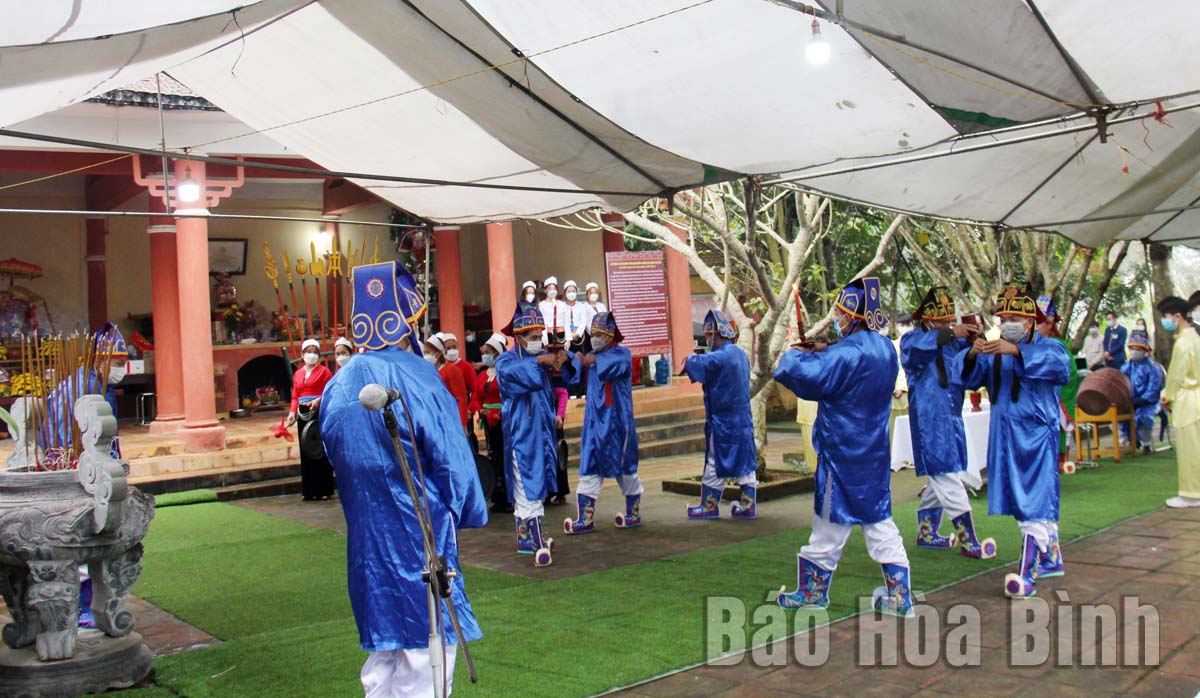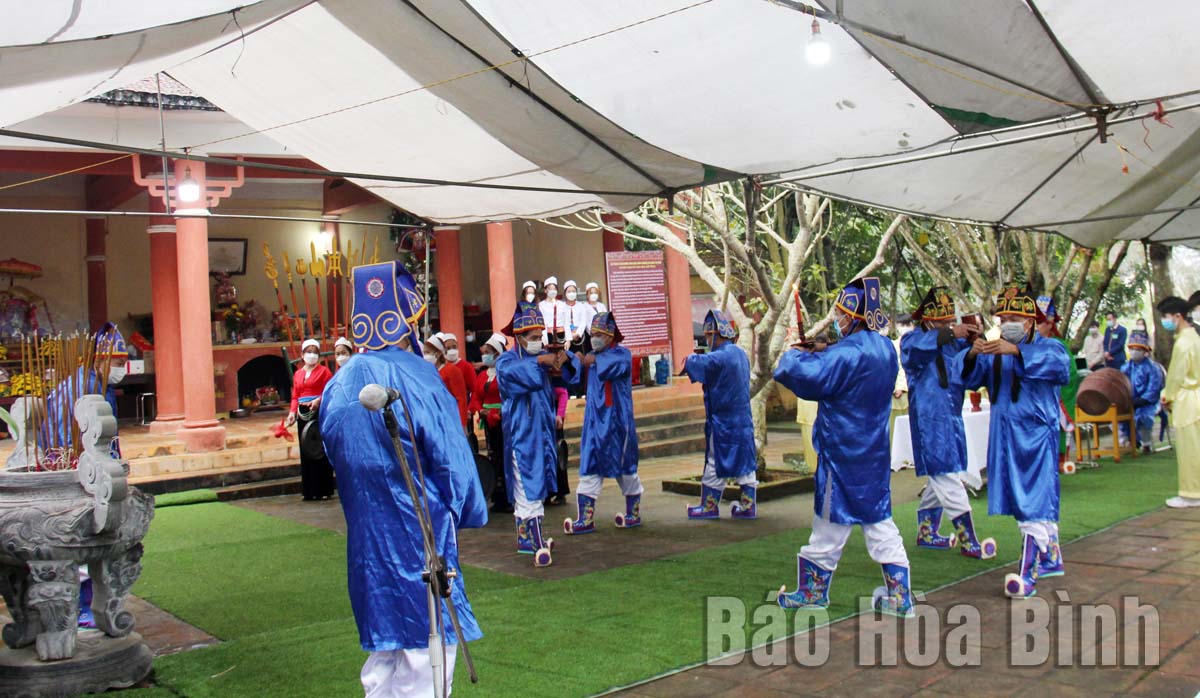
(HBO) – Over the past years, Hoa Binh province has prioritised resources for cultural heritage preservation and optimisation so as to create a strong impulse for tourism development.
Preserving
and optimising ethnic groups’ cultural heritage are hoped to help with tourism
development. Photo: A ritual performed at the Khai ha (going to the field)
Muong Bi Festival.
Statistics show that there were about 600
historical and cultural relic sites in Hoa Binh by the end of 2021, including
41 national and 61 provincial, with nearly 100 sites in the list of those
needing protection.
Meanwhile, the province is home to 786 tangible
cultural heritages and two national intangible ones, namely Mo Muong and the
gong art of the Muong ethnic group. At present, a national-level dossier is
being compiled to seek the UNESCO recognition of Mo Muong as part of the
intangible cultural heritage in need of urgent safeguarding.
All the relics and heritages are an important
resource helping with local tourism development over the past years.
On October 19, 2021, the provincial Party
Committee’s Standing Board issued Resolution No. 04-NQ/TU on the preservation
and optimisation of local ethnic groups’ cultural heritage values for the 2021
- 2025 period, with a vision to 2030. This resolution continued attaching importance
to preserving and bringing into play historical and cultural values so as to
develop tourism. It also devised many measures for capitalising on cultural and
historical values for tourism development.
However, it is a fact that there remain
shortcomings in this work, leading to a lack of high-quality tourism products
and services.
Luu Huy Linh, Deputy Director of the provincial
Department of Culture, Sports and Tourism, said to effectively tap into
cultural heritage values, the sector needs to prioritise collection and
research activities so as to identify the values of ethnic groups’ cultural
heritage; step up dissemination to raise authorities, people, and businesses’
awareness of the role, importance, and benefits of heritage; attract private
resources to building tourism infrastructure; and develop the tourism brand of
Hoa Binh in a professional manner, thereby helping turn tourism into a key economic
sector./.
With an increasingly vibrant and widespread emulation movement aimed at building cultured residential areas and cultured families, Yen Thuy District has been making steady progress toward improving both the material and spiritual well-being of its people, while fostering a civilized, prosperous, beautiful, and progressive community.
Once lacking recreational spaces and community facilities, Residential Group 2 in Quynh Lam Ward (Hoa Binh City) has recently received attention for the construction of a new, spacious, and fully equipped cultural house. The project followed the model of state support combined with public contributions in both labor and funding.
The "All people unite to build cultural life" movement, which has been effectively integrated with Kim Boi district’s socio-economic development goals, is fostering a lively spirit of emulation across local residential areas, hamlets, villages, public agencies, and enterprises. In addition, through the initiative, traditional cultural values are being preserved and promoted, while community solidarity and mutual support in poverty reduction and economic development are being strengthened.
A working delegation of the Hoa Binh provincial People’s Committee led by its Permanent Vice Chairman Nguyen Van Toan on June 11 inspected the progress of a project to build the Mo Muong Cultural Heritage Conservation Space linked to tourism services in Hop Phong commune, Cao Phong district.
Born and growing in the heroic land of Muong Dong, Dinh Thi Kieu Dung, a resident in Bo town of Kim Boi district, in her childhood was nurtured by the sweet lullabies of her grandmother and mother. These melodies deeply imprinted on her soul, becoming an inseparable part of her love for her ethnic group's culture. For over 20 years, this love for her hometown has driven Dung to research, collect, and pass down the cultural values of the Muong people to future generations.
In the final days of May, the Ethnic Art Troupe of Hoa Binh Province organized performances to serve the people in remote, mountainous, and particularly disadvantaged areas within the province. These were not just ordinary artistic shows, but they were the meaningful journeys aimed at spreading cultural values, enhancing the spiritual life of the people and contributing to the preservation of ethnic minority cultural identities.



